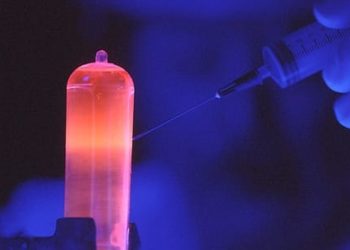Whole-genome sequencing changes clinical management in significant number of critically ill infants
1. In a randomized controlled trial of about 350 infants with suspected genetic diseases in intensive care units, the use of whole-genome sequencing (WGS) lead to changes in management and molecular diagnoses.
2. WGS did not significantly affect survival or length of hospital stay.
Evidence Rating Level: 1 (Excellent)
Study Rundown: Whole-genome sequencing (WGS) continues to become rapidly cheaper and more accessible. However, the clinical utility of WGS remains incompletely understood. This study aimed to examine the effects of WGS on care for acutely ill infants with suspected genetic disease. 354 infants aged 0-120 days in 5 US intensive care units (ICUs) were randomized to receive WGS either 15 or 60 days after study enrollment. At 60 days, a change had been made in addition to standard supportive care in 21% of patients receiving early WGS, compared to 10% for those in the late group. Among the changes in management, subspecialty referrals and medication changes were more common than disease-specific therapeutics and surgical interventions in both groups. 31% of infants in the early WGS group had received a diagnosis compared to 15% in the late group at 60 days. At 90 days, these roughly 2-fold increases in rates of management changes and diagnosis were replicated in the late WGS group. WGS had no significant effect on total length of stay or patient survival. This study provides high-quality evidence for the clinical benefit of WGS as compared to usual diagnostic testing. The effect on clinical management here was incremental, with many patients receiving nondiagnostic results and relatively few diagnosed patients receiving targeted therapies. However, in the context of neonatal critical illness, these findings are encouraging and provide a strong case for use of WGS. 35% of families approached for this study declined, which indicates a known but significant challenge to widespread use of this technology.
Click to read the study in JAMA Pediatrics
Relevant Reading: Long-read human genome sequencing and its applications
In-Depth [randomized controlled trial]: Infants were included based on clinical suspicion of genetic disease and excluded if a genetic diagnosis had already been made. For 57% of the cohort, the indication for testing was multiple congenital anomalies; other indications included neurologic disorders and single major features. WGS was performed using parental DNA samples as available, then analyzed using a family-informed analysis pipeline. Infants in both the early and delayed WGS groups were observed for a total of 90 days. Changes of management were assessed using a standardized rubric and included changes after initial ICU discharge. Study site was controlled for in assessing the effect of WGS on changes in management. Among all patients, 7 (2%) received therapy specific to genetic etiology. A proportional hazard model was used to assess time to diagnosis, which was found to be significantly associated with time to return of WGS results.
Image: PD
©2021 2 Minute Medicine, Inc. All rights reserved. No works may be reproduced without expressed written consent from 2 Minute Medicine, Inc. Inquire about licensing here. No article should be construed as medical advice and is not intended as such by the authors or by 2 Minute Medicine, Inc.



![Maternal cell-free DNA sequencing superior to standard aneuploidy screening [CARE Study]](https://www.2minutemedicine.com/wp-content/uploads/2014/02/47-karyotype-350x250.jpg)



